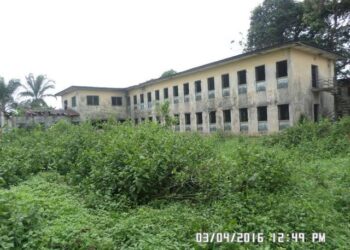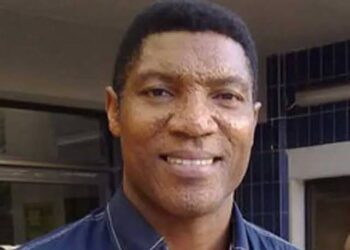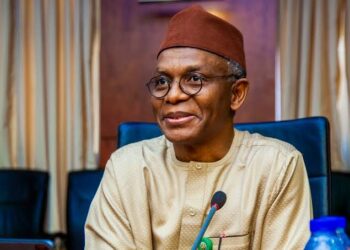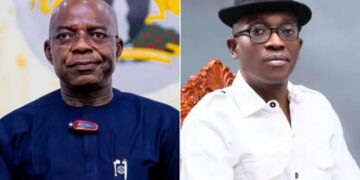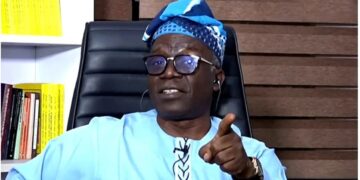Memory is a sketch artist, not a mirror—what it draws is shaped as much by time as by truth.”
In the wake of former President Muhammadu Buhari’s death, we’re witnessing the familiar dance of remembrance eulogies casting long shadows of praise, sometimes glossing over complexities that once dominated public discourse. It’s a reminder that human memory is rarely a faithful archivist; it edits, softens, reframes. The same voices that once held Buhari to account now pen tributes dipped in nostalgia. But as the eulogies fly left, right and center, I looked in the rearview mirror and I saw young Nigerians in the sweltering October heat of 2020. I saw young Nigerians across cities as they poured into the streets with a simple demand: #EndSARS. Their placards spoke of years of unchecked police brutality, their chants echoed a longing for dignity, and their hope rested on the promise of democracy. But on the night of October 20 at Lekki Toll Gate, bullets met banners, and the Nigerian state, under President Muhammadu Buhari, revealed a darker face of its governance.
That night was not just a turning point in Nigeria’s protest history; it was the climax of a long, painful erosion of human rights under Buhari’s watch. Now, as political sycophants rush to sanitize his legacy in death, we must confront the stark truth: Buhari was not just a failed president; he may well have been the worst president Nigeria has ever had.
The Repression of Dissent
“A true democracy must be built on dialogue and compromise,” Nelson Mandela once said. But Buhari’s government seemed more invested in silencing voices than hearing them. From journalists imprisoned for critical reporting to peaceful protesters teargassed and arrested, the state apparatus under Buhari became allergic to scrutiny.
Human rights organizations, including Amnesty International, documented numerous violations. The government’s playbook included unlawful detentions, harassment of opposition figures, restrictions on press freedom, and the use of anti-terror laws to muzzle critics.
Omoyele Sowore, a former presidential candidate, was arrested in 2019 for calling for a peaceful protest. His crime? Demanding better governance. Even media houses were not spared. Channels TV faced threats over interviews that did not sit well with the Buhari’s administration. In Buhari’s Nigeria, free speech became a threat to national security.
Under Buhari, insecurity metastasized. Boko Haram retained its grip in the northeast. Bandits roamed the northwest, turning schools into abduction zones. But perhaps the most damning chapter was the emboldening of Fulani herdsmen.
From Benue to Plateau, communities were razed, farmers murdered, and families displaced by herdsmen wielding AK-47s. Yet the Buhari administration consistently downplayed these atrocities. Where was the outrage? Where was the action?
Instead of addressing the root causes, the government gaslit the victims and defended the attackers. President Buhari, himself of Fulani heritage, was accused of turning a blind eye to ethnic violence that disproportionately affected Christian farming communities. The result? Deepening distrust, regional animosity, and a slow-burning national fracture.
Now, in the wake of his death, a parade of political opportunists has emerged to rewrite history. They speak of Buhari as a “disciplinarian,” a “man of integrity,” even a “patriot.”
But integrity is not measured by rhetorics; it is tested by action. And by that measure, Buhari failed. Catastrophically.
It is dangerous for a nation to glorify failure. We must resist the collective amnesia that turns tragedy into triumph and repression into remembrance. As George Orwell warned, “Who controls the past controls the future. Who controls the present controls the past.”
In every democracy, leadership is judged not by comfort but by crisis. Buhari faced multiple crises—economic, security, social—and mishandled them all. His presidency left Nigeria weaker, poorer, more divided, and less free.
We owe it to the victims of Lekki tollgate, to the kidnapped schoolchildren, to the displaced families of Benue, and to the millions crushed under inflation, to tell the truth: Buhari’s presidency was not a model of democratic governance; it was a cautionary tale.
As Nigeria prepares for future leadership, may we remember this era not with romanticism, but with resolve—to never again hand power to a man whose silence spoke louder than action, and whose shadow loomed longer than his service.
Let history record it clearly: Muhammadu Buhari strained our democracy, bruised our freedoms, and betrayed the very people he vowed to protect.



